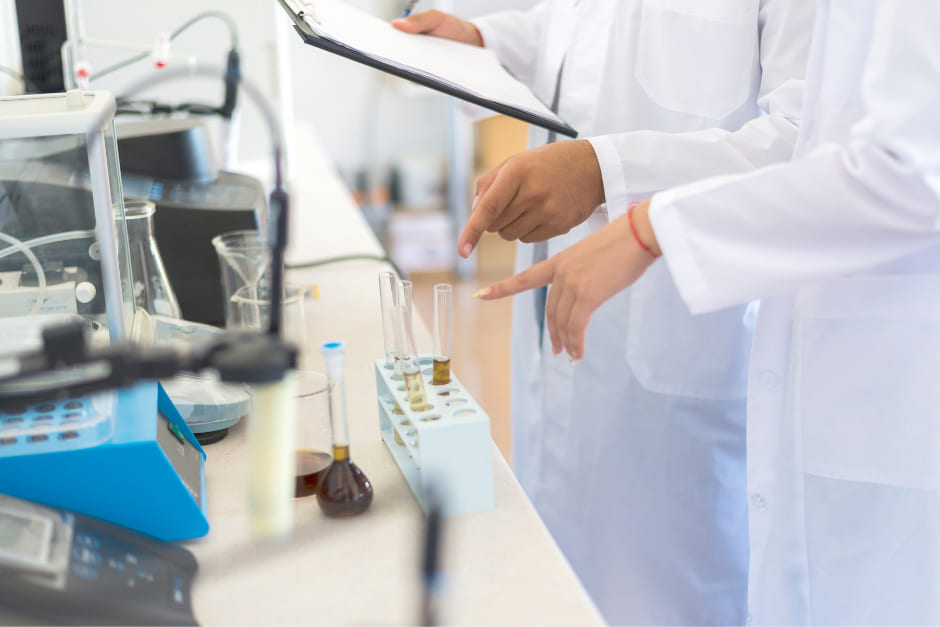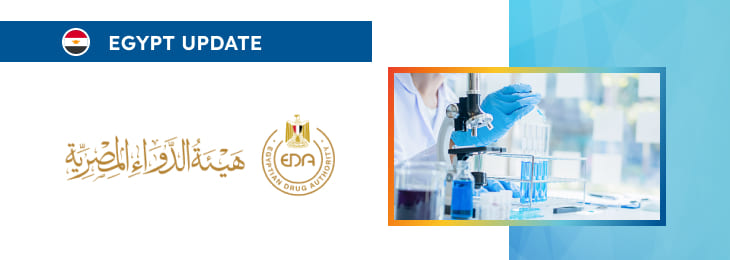The article describes in detail the matters related to the objectives of clinical trials, as well as the applicable regulatory oversight.

Table of content
The Egyptian Drug Authority (EDA) has published the guidelines for Good Regulatory Oversight of clinical trials. The document provides an overview of the applicable regulatory requirements, as well as additional clarifications and recommendations to be taken into consideration by the parties responsible for clinical investigations in order to ensure the safety of study participants, as well as the accuracy and reliability of the results.
The authority also reserves the right to make changes to the guidelines and recommendations provided, should such changes be reasonably necessary to reflect corresponding amendments to the underlying regulations.
Objectives
The relevant section of the guideline fulfills the roles assigned to the Egyptian Drug Authority under Clinical Trials Law No. 214/2020 and Executive Regulation No. 927/2022. It offers applicants guidance on the format, steps, timelines, and content required for submission to the EDA during clinical medical research.
The key objectives of this guideline include:
- Evaluating Preclinical and Clinical Research Results: The guideline outlines the procedure for evaluating the outcomes of preclinical and clinical medical research, ensuring compliance with regulatory standards.
- Scientific Review of Products: Before conducting clinical medical research, medicinal or biological products must undergo a thorough scientific review.
- Review of Research Protocols and Amendments: The EDA reviews and evaluates research plans (protocols), amendments, and associated investigational product documentation to ensure alignment with GCP and proper manufacturing, marketing, and storage practices.
- Inspection of Clinical Research Sites: Clinical medical research sites and relevant entities undergo inspections to verify adherence to GCP.
The guideline also emphasizes the responsibilities of the sponsor and the Principal Investigator (PI) as defined under Egyptian Clinical Trials Law No. 214/2020 and GCP principles. Furthermore, the document clarifies the information required by the EDA from applicants and the evaluation and follow-up processes for clinical medical research in Egypt.

Clinical Trials Regulatory Oversight
According to the document, the EDA adopts GCP principles based on the International Council for Harmonization (ICH) E6 guidelines and World Health Organization (WHO) guidelines, including their updates.
The key GCP principles are as follows:
- Ethical Conduct: Clinical trials must be conducted following the ethical principles rooted in the Declaration of Helsinki and in accordance with GCP and applicable regulatory requirements.
- Risk-Benefit Analysis: Before initiating a trial, foreseeable risks should be weighed against anticipated benefits for trial subjects and society. Trials should only proceed if the benefits justify the risks.
- Prioritizing Subject Welfare: The rights, safety, and well-being of trial subjects take precedence over scientific and societal interests.
- Adequate Information on Investigational Products: Nonclinical and clinical information about investigational products must be sufficient to support proposed clinical trials.
- Scientific Validity: Clinical trials must be scientifically sound and described in a clear, detailed protocol.
- Protocol Compliance: Trials must adhere to approved protocols, which have been reviewed by Institutional Review Boards (IRBs) or Independent Ethics Committees (IECs).
- Qualified Medical Care: Medical care and decisions related to trial subjects must be made by qualified physicians or dentists, when appropriate.
- Qualified Personnel: All personnel involved in the trial must be appropriately qualified through education, training, and experience.
- Informed Consent: Freely given informed consent must be obtained from every participant prior to trial participation.
- Accurate Data Recording: All clinical trial information must be recorded, stored, and handled in a way that allows accurate reporting, interpretation, and verification.
- Confidentiality: Confidentiality of subjects’ records must be protected in compliance with applicable privacy and confidentiality regulations.
- GMP Compliance: Investigational products must be manufactured and stored according to Good Manufacturing Practice (GMP) standards and used as per the approved protocol.
- Quality Assurance: Systems must be in place to ensure the quality of all aspects of the trial, focusing on elements essential for human subject protection and the reliability of trial results.
Preclinical Screening and Evaluation Before First in Human (FIH) Trials
The document also provides an overview of the key points related to preclinical screening and evaluation.
For screening:
- Applicants must submit preclinical package data to the Bio-Inn unit via email, along with proof of payment. The process starts once the package or payment is received.
- EDA screens submissions within five days and notifies applicants of any missing documents or clarifications. Applicants have 15 days to respond.
- Once all requirements are met, EDA accepts the preclinical package via email.
For submission:
- Applicants must officially submit the complete screened package within 10 days of acceptance. Failure to do so results in cancellation, though an extension may be granted upon valid justification.
For evaluation:
- Preclinical data are evaluated based on national and international guidelines. Applicants must respond to any further requirements or clarifications within 15 days.
- If requirements are not met, the application may be declared void after a final notice from the EDA.
EDA’s Final Decision:
- EDA’s regulatory decision (approval, conditional approval, or refusal) is issued within 60 days from the official submission. The decision is communicated within 30 days of its issuance.
Clinical Trials Protocol Submission and Evaluation
For routine submissions:
- Applicants submit the clinical trial package and proof of payment following the provided template forms.
- Screening is completed within five days, and applicants must respond to any requests for clarification within 15 days. Acceptance of the package is communicated via email.
- After screening, the applicant submits the official package within 10 days of acceptance, with proof of payment.
- The clinical trial protocol, previous study results, and quality dossier are scientifically evaluated. Further clarifications may be requested from the applicant.
- EDA’s final decision is communicated within 60 days from the official submission. The decision is shared with the Supreme Council and other relevant entities.
For non-routine submissions:
- Non-routine submissions may be authorized under exceptional circumstances, such as pandemics or unmet medical needs. EDA supports expedited authorization through parallel submission or other measures.
- Non-routine submissions are screened and evaluated similarly to routine submissions, with specific timelines.
Reliance Submission Pathway
Under the general rule, the EDA may rely on regulatory decisions from reference countries when assessing clinical research. This reliance does not diminish EDA’s independence or responsibility.
However, applications that have been rejected, suspended, or put on hold in reference countries are automatically disqualified during screening. The reliance submission process involves the screening, submission, and evaluation of clinical trial packages.
Final decisions are typically issued within 30 days, with specific provisions for imported products.
Amendments to Clinical Trials Protocols
Amendments to approved protocols must be approved by EDA, except when immediate changes are needed to eliminate hazards. Depending on the nature of the amendment, applicants may receive different types of notifications.
Amendments classified as substantial require official submission and are evaluated within 60 days. Non-substantial amendments are evaluated within 15 days.
Annual Approval Renewal
EDA approval is valid for one year, and renewal requests must be submitted at least one month before the expiration date. Renewal is granted within 30 days of the request submission, provided all requirements are met.
Conclusion
In summary, the guideline provides detailed information on the steps and requirements for conducting clinical medical research in Egypt, from preclinical screening to the final evaluation of clinical trial protocols. The EDA ensures that all research complies with GCP principles, safeguarding the rights, safety, and well-being of participants while maintaining the integrity of clinical trial data.
How Can RegDesk Help?
RegDesk is an AI-powered Regulatory Information Management System (RIMS) designed to simplify global compliance for medical device companies. With regulatory intelligence covering 120+ markets, RegDesk helps you prepare and publish global submissions, manage standards, conduct impact assessments, and stay ahead of regulatory changes all from a single, centralized platform. Expanding into new markets has never been easier.

